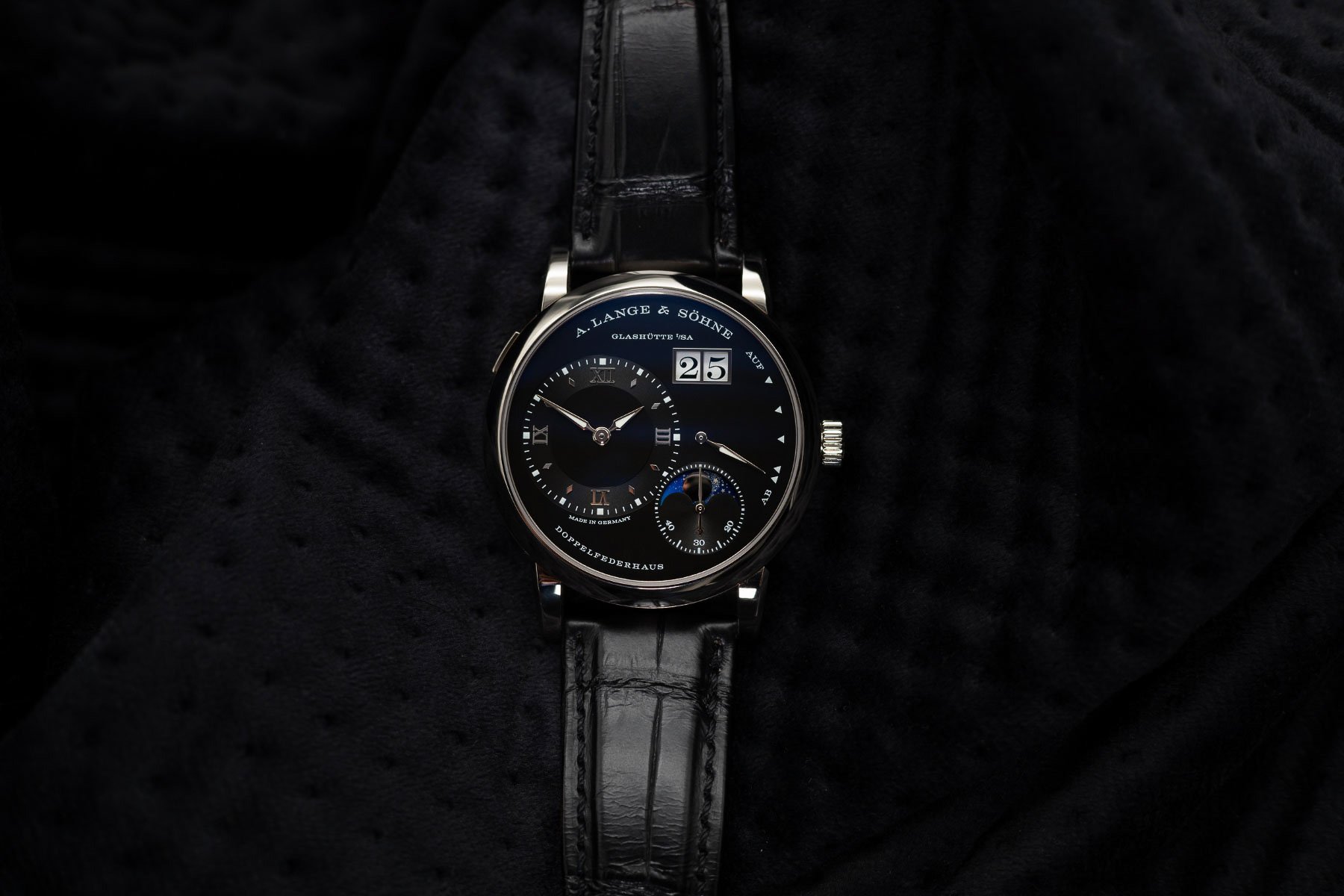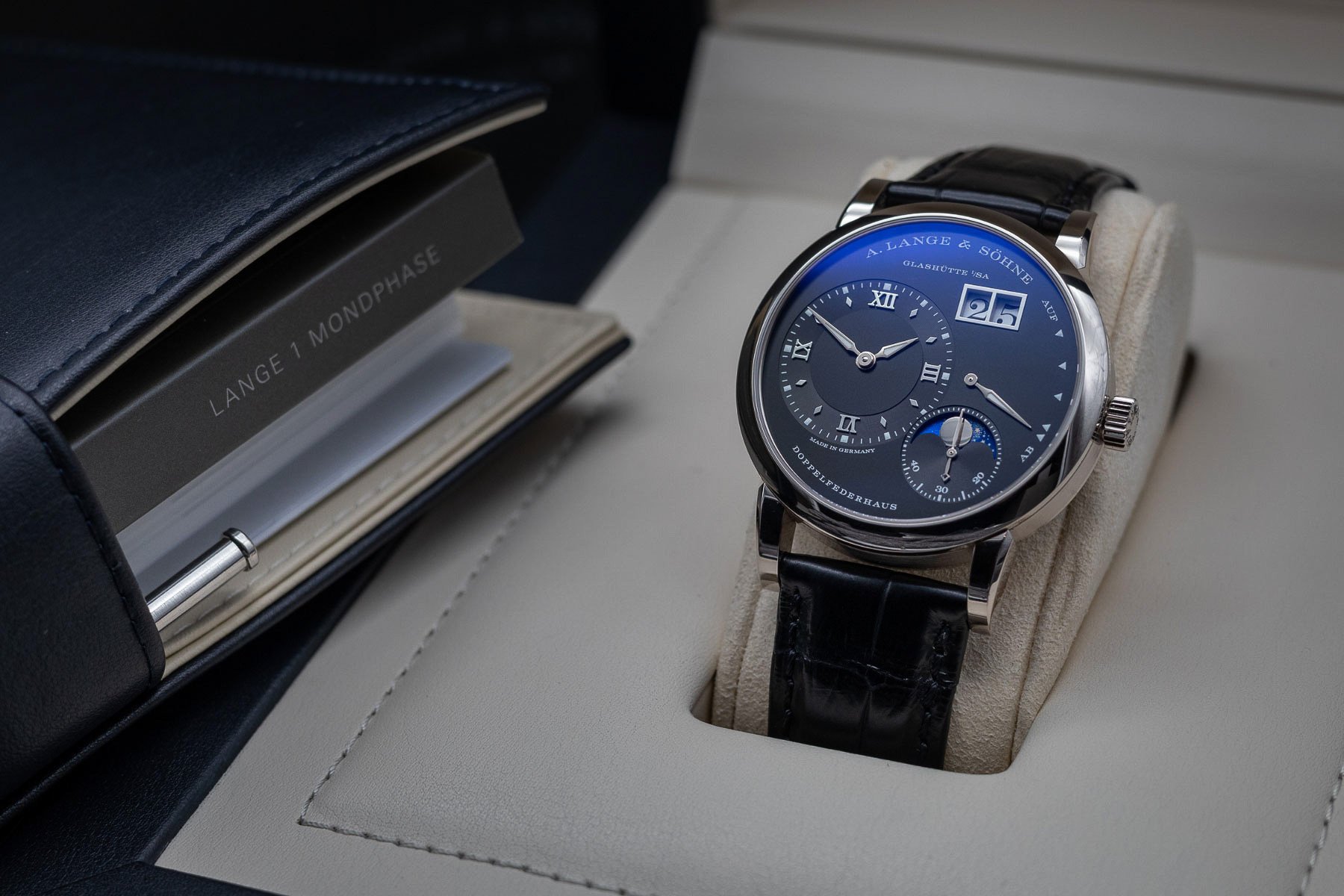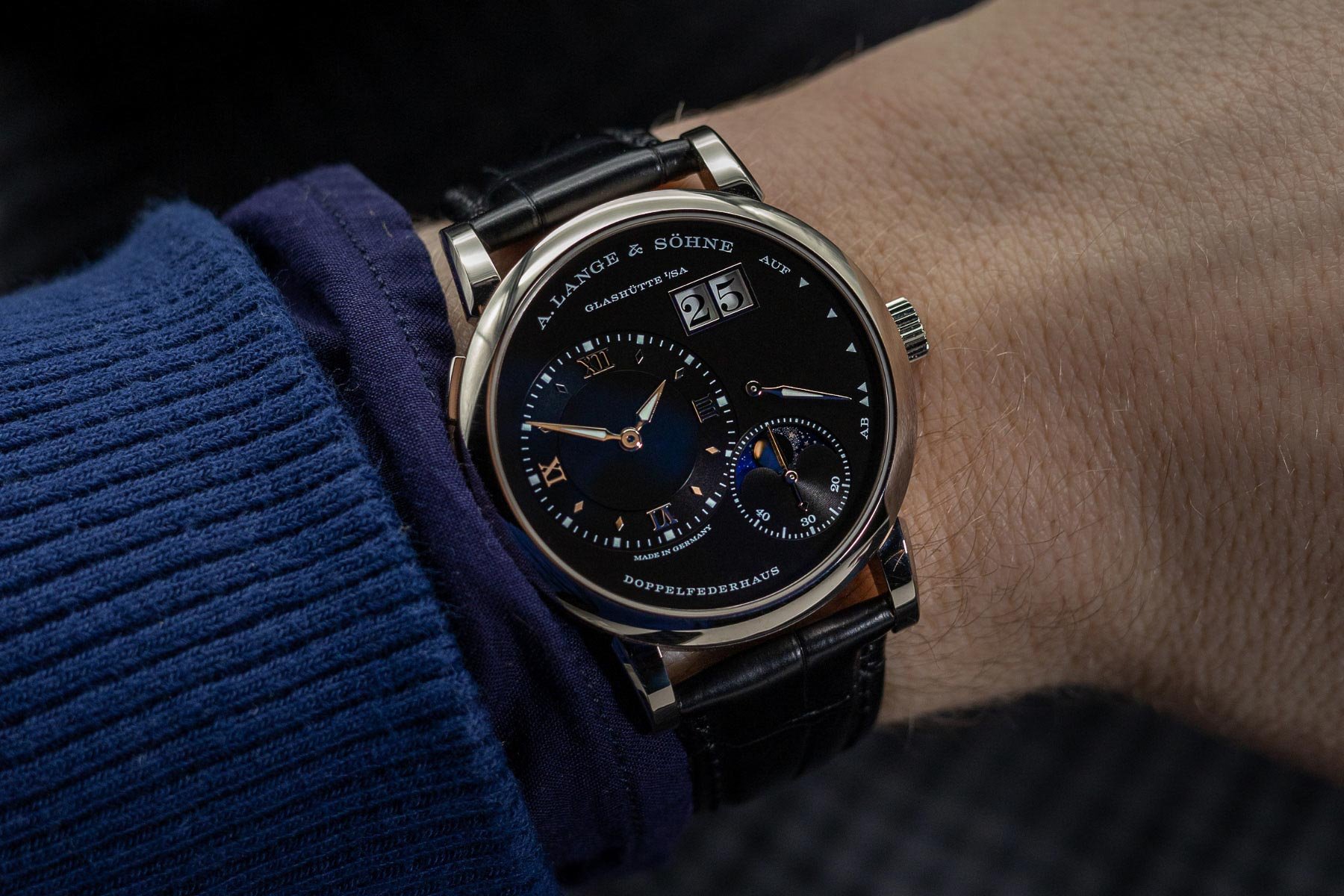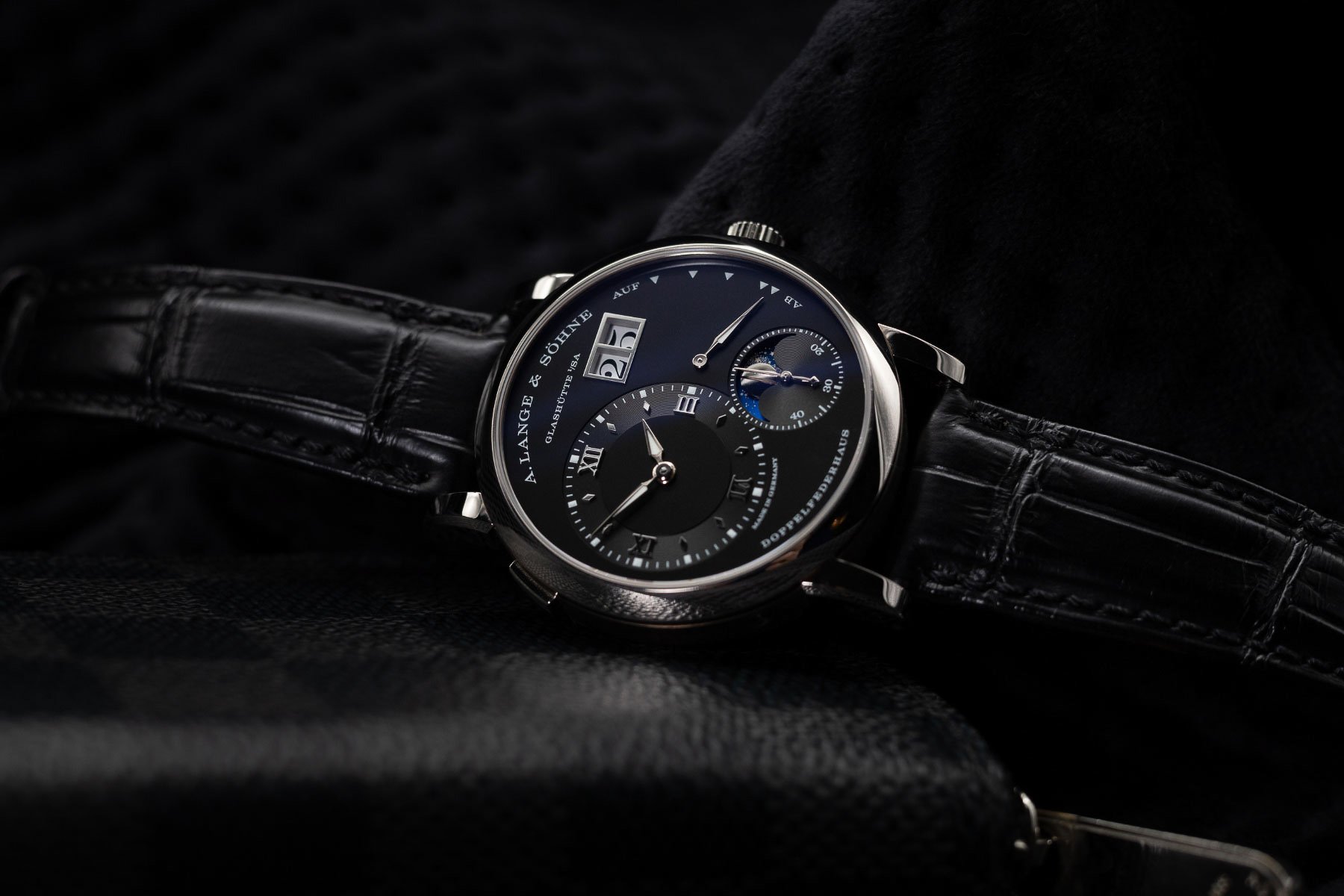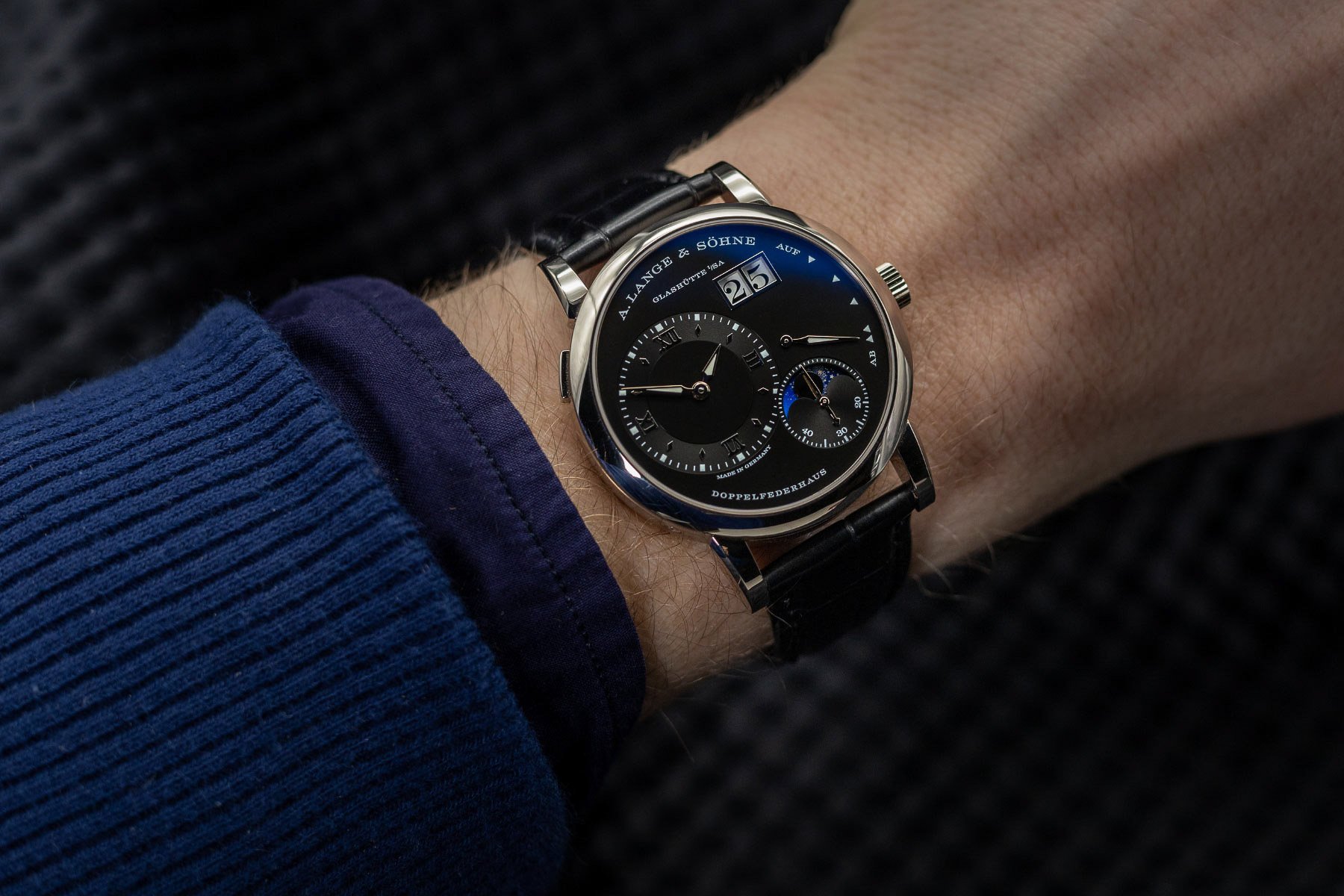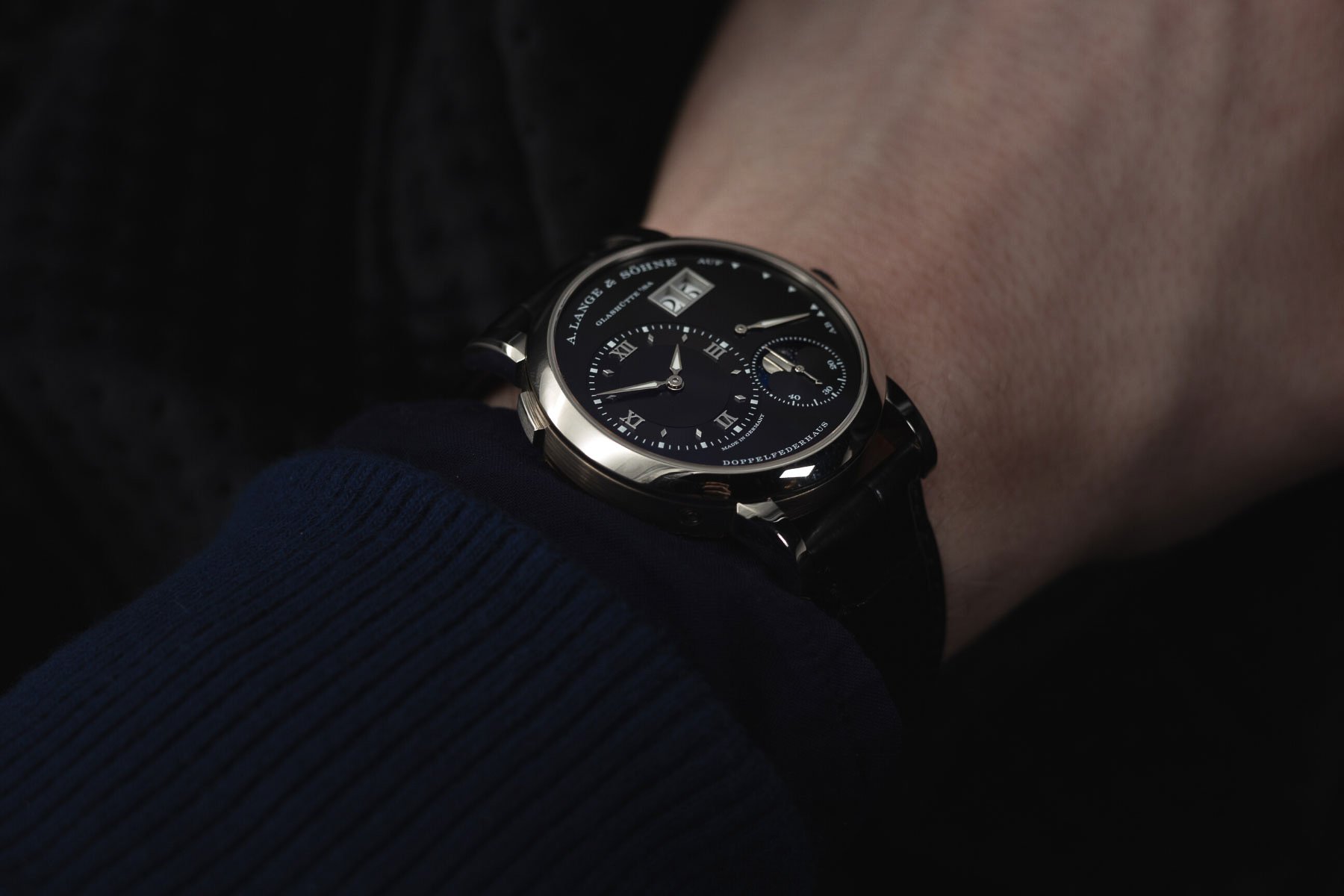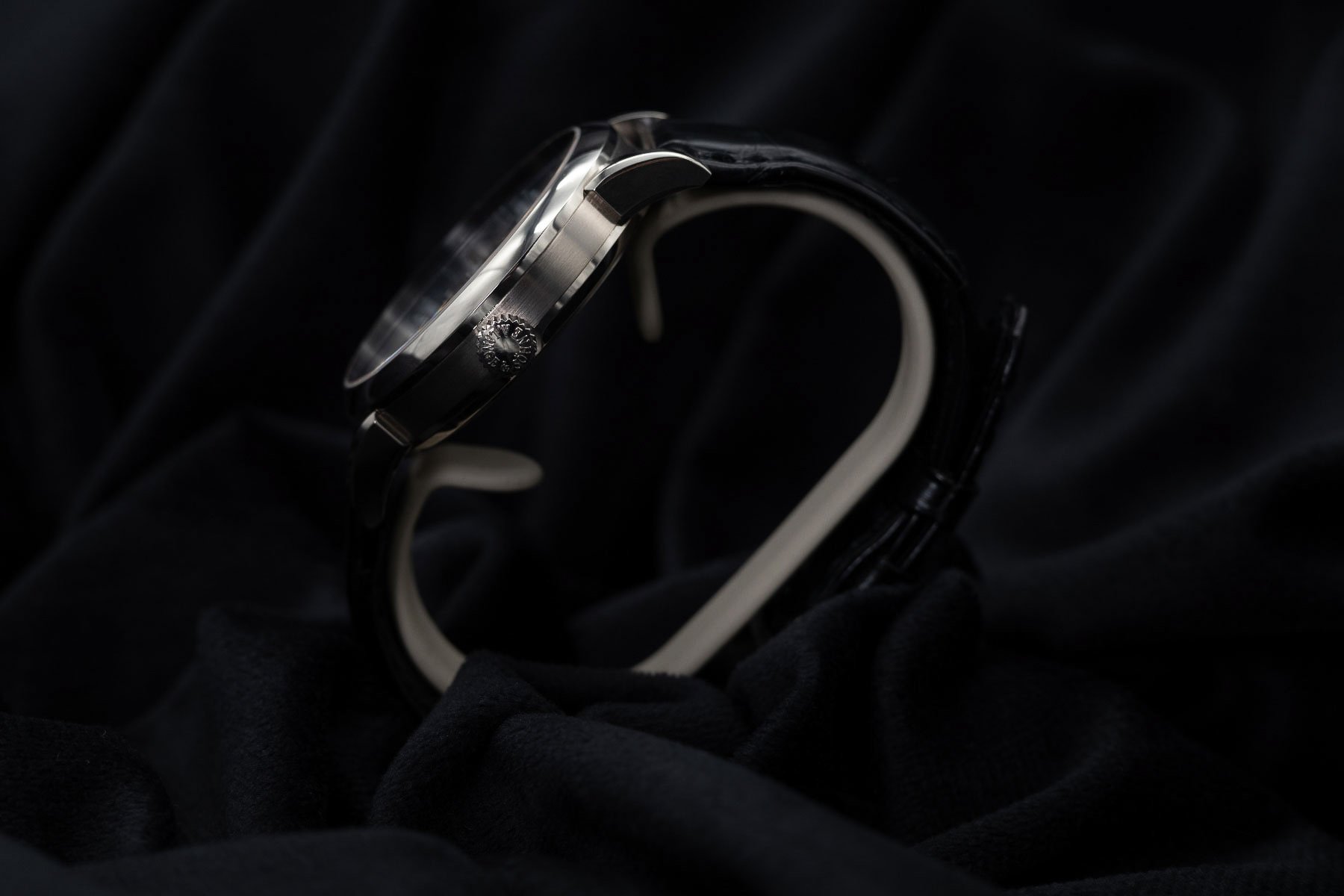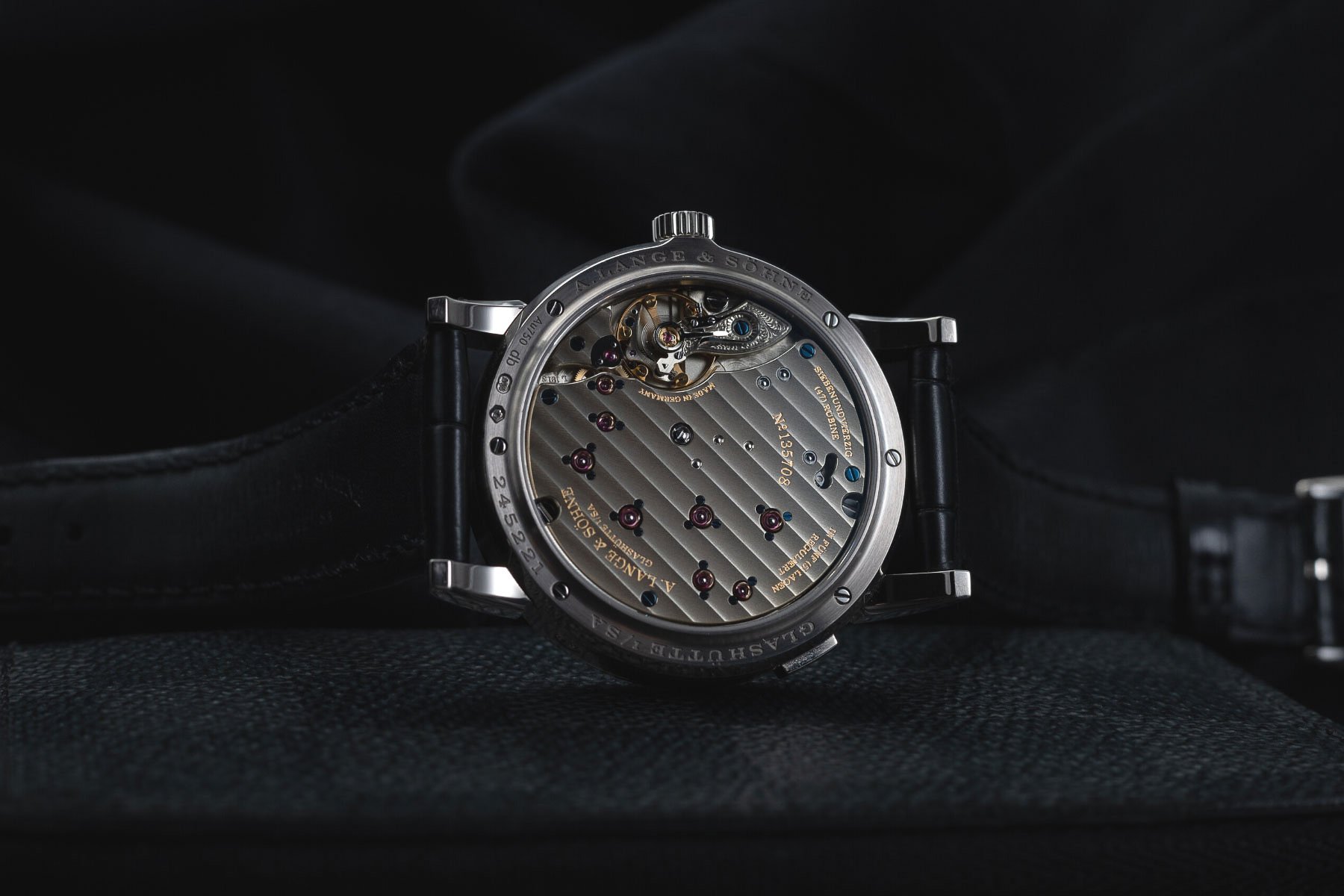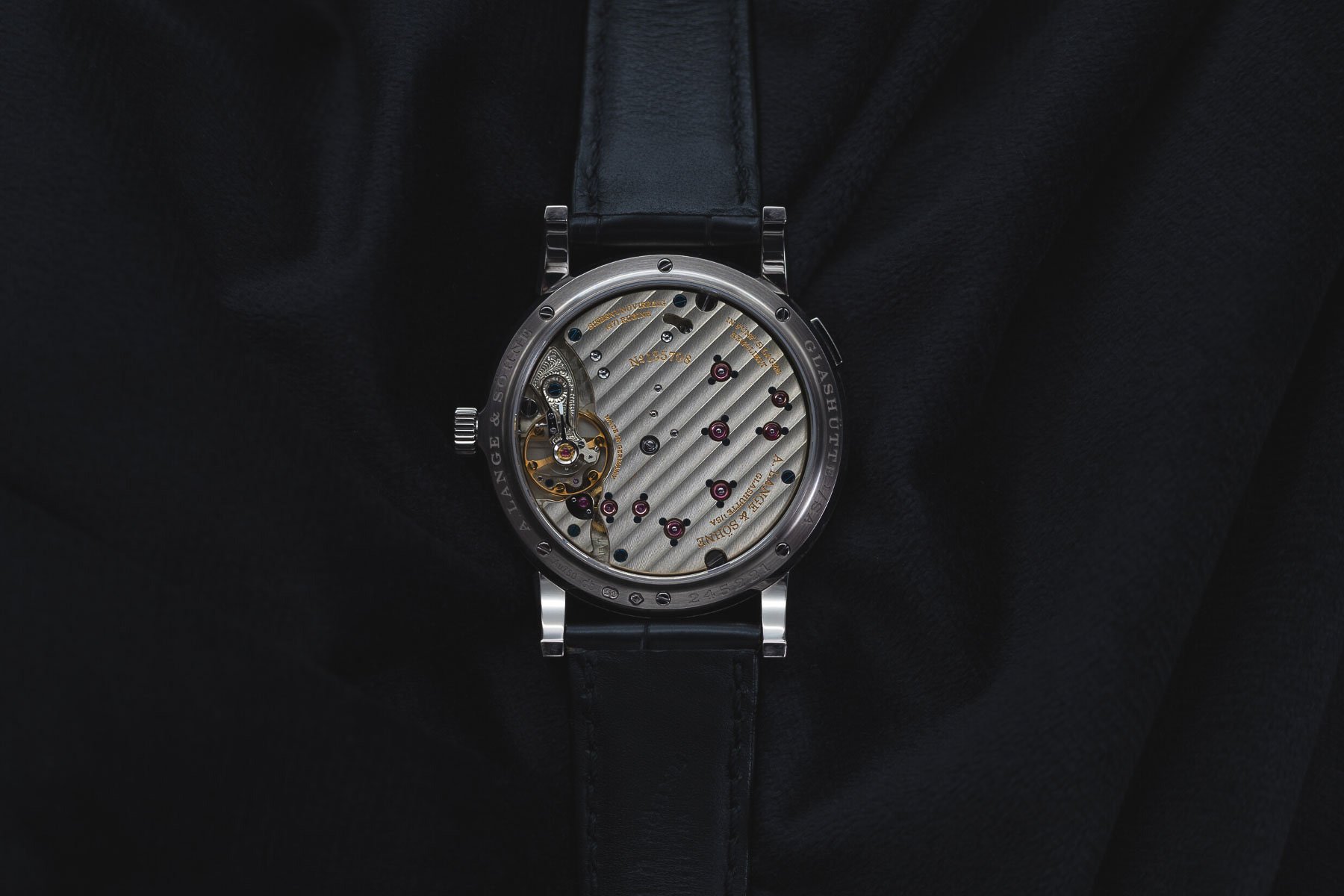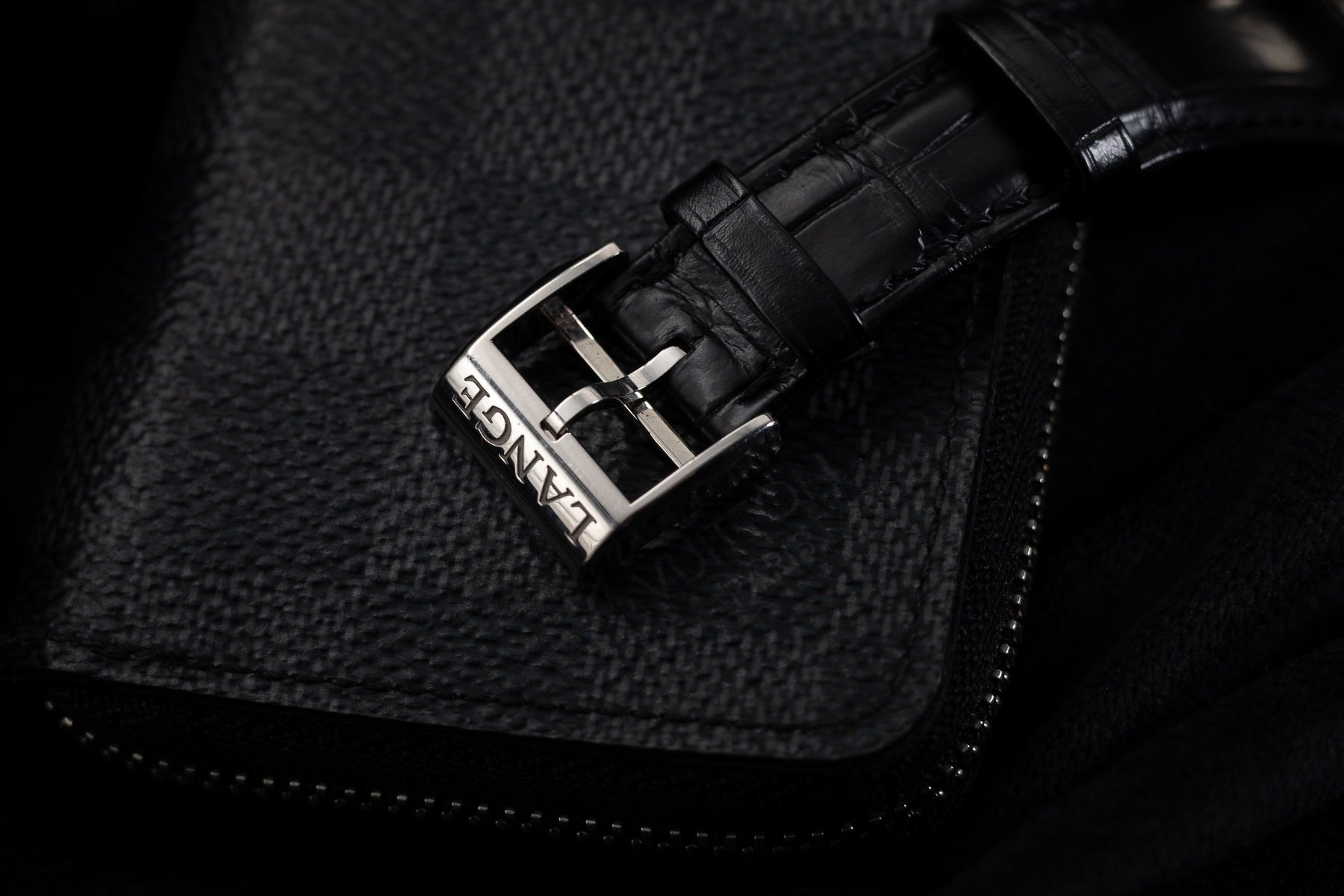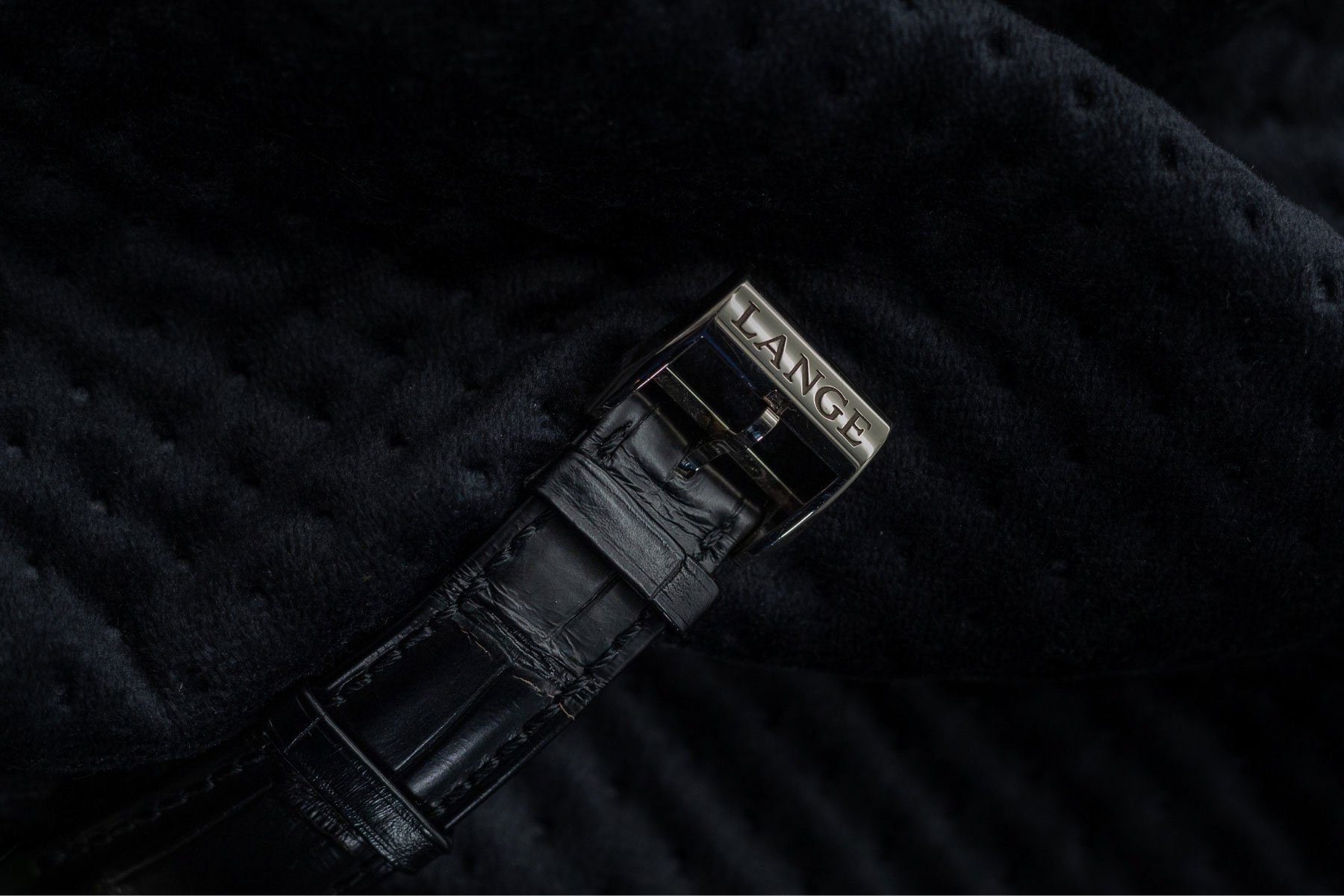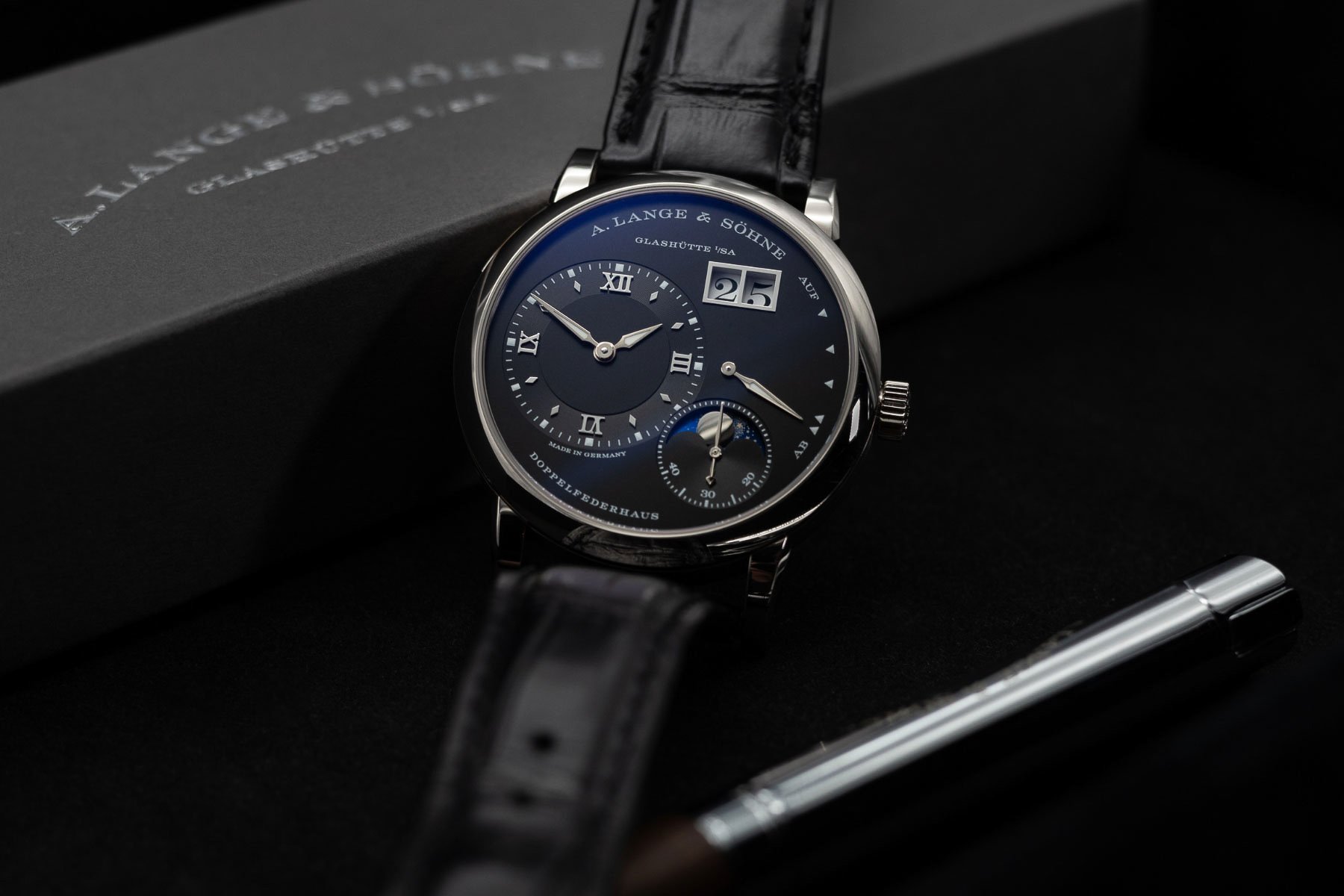A Reader’s Review Of His A. Lange & Söhne Lange 1 Moon Phase 192.029
Since we here at Fratello love watches and collect them ourselves, we also like attending get-togethers (or GTGs) and discussing them. Doing so often leads to interesting discussions about watches and insights into why people chose certain ones. It’s like a live comments section but with drinks and bites (yes, you can also have those while participating in the comments section). For this article, Joey Spreeuwenberg submitted a review of his A. Lange & Söhne Lange 1 Moon Phase ref. 192.029. Nothing less than a dream watch for him, this Lange 1 has also proven to be a GTG darling.
A. Lange & Söhne Lange 1 Moon Phase ref. 192.029
A timepiece that originates from a classic conception but flirts with contemporary design. One that has mastered the asymmetric and skillfully utilized the golden ratio. I will take you through my firsthand experience with, arguably, A. Lange & Söhne’s best all-arounder, the white gold Lange 1 Moon Phase with a black dial.
A. Lange & Söhne (ALS) is a luxury timepiece manufacturer based in Glashütte, Germany, and was founded by Ferdinand Adolph Lange in 1845. The company was forced to close during World War II, and it was not until after the reunification of Germany that the brand was revived by Lange’s great-grandson Walter and industry veteran Günter Blümlein.
While not an independent company but part of the Richemont group (which also includes Vacheron Constantin, Cartier, and Piaget, for example), ALS still operates, for all intents and purposes, as an independent watch brand. And despite potential demands from shareholders, it still only produces an average of 5,000 watches annually and introduces special models such as the Zeitwerk.
Riding the hype train to Glashütte
The past three years have been nothing short of a whirlwind in the watch industry. You could even call it insanity. In parallel with the booming stock market and skyrocketing crypto prices, the watch industry did not remain untouched.
Retail investors, small dealers, and pretty much anyone with some disposable income figured out that watches were keeping their value and, in some cases, even appreciating. I do not need to elaborate on this. But the consequences were exploding waiting lists and secondary (gray) markets commanding insane prices.
Less flex on social media
Whether this originated from the craze on social media or rather from people looking for a quick buck, I will leave that open to debate. That said, this did have a direct effect on a lot of watch companies. As established watch brands saw their turnover soar and continued to raise their prices, this trickled down to independent watch brands as well. Horologists started looking for watches that others did not possess. A case in point is the success of F.P.Journe as well as my much-beloved A. Lange & Söhne.
In the case of Lange, this has worked out somewhat differently from other brands. While auction results have risen, the flex on social media has been less widespread. Nevertheless, the hype of the secondary market has not eluded Lange. New models are often listed for more than their respective retail prices.
It is also worth noting that regular models have gone up considerably in recent years. While in 2020, you could still find a Lange 1 for around €18,000, a similar one today would set you back at least €26,000. In my opinion, however, this is still a good deal.
It will be interesting to see what the secondary market will do in the next couple of years. Recently, the market has been cooling down a bit. But while Rolex prices are dropping; Lange prices continue to rise. So, really, I shouldn’t be writing this article. Any publicity contributes to visibility and (potential) popularity, after all. I am basically shooting myself in the foot.
Longing for the Lange 1
In 1995, A. Lange & Söhne saw its revival through the successful launch of four distinct watches — the Saxonia, Arkade, Pour le Mérite, and Lange 1. Of these four, the last was surely the star of the show. ALS immediately set the tone with the Lange 1, distinguishing itself from its Swiss competitors by betting on quirky design, mathematical precision, and German craftsmanship.
I recall the moment I first saw a Lange 1 in the flesh. It caught my eye at a business meeting in Interlaken, Switzerland, of all places. During dinner, I noticed the watch on a client’s wrist, and I immediately recognized it as a Lange 1. I was amazed. The watch always stuck with me, although it would still be years before I could afford one for myself.
While Lange has expanded on its most popular model over the years by releasing several variations, one stood out to me the most — the Lange 1 Moon Phase. One of the most striking features is how this complication fits into the overall design. Let’s explore the most eye-catching component, the dial.
Mathematical aesthetics
The face is an important feature, be it the face of a person or the face of a watch. It is, after all, the most obvious part. From its inception, the dial of the Lange 1 has been the most iconic and distinctive feature. Whereas the movements are based on those of old pocket watches, the dial arrangement has been engineered from scratch using the golden ratio.
This is often considered an aesthetically pleasing proportion and is used in art and architecture to create a natural and visual balance. Though the dial has a distinctive asymmetrical layout, by using this mathematical (or natural) ratio, it achieves a harmonious appearance
The crystal-clear sapphire glass allows for the matte black dial made of solid sterling silver to come into its own. While it is not a particularly deep black, it is sufficiently so that it creates an adequate contrast to its complementary elements. The most prominent of these is the big white gold date window, which allows us to peek at the deep black digits on a crisp white backdrop. This is the signature design that the Glashütte watchmaker has become so famous for.
The largest element is the off-center sub-dial with white gold applied Roman hour markers and luminous white squares. Despite the small size of the squares, they are very powerful in terms of lume and are sufficiently noticeable in the dark. The periphery of the sub-dial is slightly lowered, providing depth and a notable contrast to the rest of the dial.
Dial details of the Lange 1 Moon Phase
Obviously, the most gorgeous feature of the dial is the moonphase display with day and night indicators. Located behind the small seconds register, the black of the dial is contrasted by a gorgeous bright blue sky during daytime and a dark blue sky studded with 383 stars during nighttime. Polished to perfection, the moon looks like a little mirror. Both the moon and stars are, of course, made of warm white gold.
What gets my juices flowing is the use of the German language written across the dial. At the top is the full name of the brand and its hometown, Glashütte in Saxony, Germany. For the power reserve indicator, you won’t find something universal like numbers. Instead, you’ll find the German “ab” and “auf,” which Lange translates as “down” and “up” (zero or full power), respectively.
At the very bottom of the dial, we see “Doppelfederhaus,” which probably means something like “I love you” in German. Or perhaps it means the Lange 1 is equipped with double spring barrels for a 72-hour power reserve.
Not just a pretty face
If the golden ratio can be used for a pleasing dial layout, does such a ratio also exist for the absolute perfect size? This is subjective, of course, but maybe Lange got it right. With a lug-to-lug distance of 47mm and an official diameter of 38.5mm, the proportions are very comfortable.
With a 10.2mm-thick 18K white gold case and comparatively short lugs (though some consider them too tall), the watch wears flawlessly on my 17.5cm wrist. My significant other’s 15cm wrist can also comfortably accommodate the watch without appearing out of proportion. Whereas a 36mm case sometimes seems small on wrists of 19cm and up, the Lange 1 remains in ratio. In the end, it will still be a preference.
The case consists of three layers, with the top and bottom ones polished and the middle layer brushed all the way around. Attached to this brushed center, you will find that the polished lugs are quintessential Lange. Finishing the splendidly made and solid case is the polished, domed bezel made of white gold, which creates a beautiful play of light.
The white gold here is among the more expensive alloys that you can find on the market. Unlike other brands that mostly use platinum in conjunction with yellow gold, Lange instead uses palladium. This ensures that no additional rhodium plating is necessary. Contrary to what many people believe, palladium is more costly compared to platinum, resulting in a more valuable composition. The white gold has a warm glow compared to the white gold alloys of other brands.
As you turn the watch over, you behold its most outstanding feature. Through the clear sapphire glass on the backside, you contemplate the beautifully crafted movement. The glass is so crystal clear that you sometimes forget that there is actually anything there. However, I must admit that due to the crispness of the glass (on both sides), you can easily spot every single fingerprint on it.
The Lange 1 Moon Phase movement in motion
If I were to use a single word to describe the timepiece it would be “artisanal.” Due to the different finishes and materials used, I find Lange’s movements more appealing than those in most Swiss timepieces. Although the solid German silver three-quarter plate covers up a large portion of the movement, you can still see plenty of beautiful finishes. The three-quarter plate itself is nicely finished with Glashütte stripes.
If I had a steady hand (and a lot of patience), I might have taken a watchmaking course myself, purely so I could see all the components. Even the non-visible parts are finished to the same degree as the visible ones. ALS is known for its two-fold assembly, which ensures that everything remains perfect even after fine-tuning the movement.
Moonphase complication accurate for 122.6 years
Of all the visible parts, your eyes are drawn to the hand-engraved balance cock. Lange does not employ a lot of watchmakers who can accomplish this. It ensures that each Lange watch includes a unique handcrafted component, another tribute to the brand’s heritage in pocket watches. On Reddit, there are even topics where you can try to find out who the engraver of your balance cock was.
More than just pleasing to the eye, the movement is a feat of German engineering. It controls all the complications visible on the dial. One hidden complication is the zero-reset function, which ensures that the seconds hand always jumps to the starting position when the power reserve runs out.
The highlight of the L.121.3 movement is the moonphase complication. As Lange itself describes it best on its website:
”The average lunar month lasts 29 days, 12 hours, 44 minutes, and 3 seconds. Simplified lunar phase displays round off the cycle to 29.5 days. This inaccuracy amounts to a deviation of one day after two and a half years. The LONG 1 MOON PHASE tracks the lunar cycle with an accuracy of 99.998 percent. Once set correctly, the display should be corrected by one day after 122.6 years, assuming the watch runs without interruption.”
Strap and buckle
The watch comes by default with a black alligator leather strap made by one of Lange’s outstanding suppliers. After a year of intensive wear, the strap shows only a few wear marks. Additionally, the leather has quickly become supple without compromising toughness. It is only where the pin of the buckle touches the leather that you will see some real wear and tear. Having a folding clasp would reduce this a lot.
I expected a folding clasp from Lange
Frankly, I don’t understand why a folding clasp does not come with this watch by default. I am not a purist and certainly not someone of tradition (neither is Lange with the Zeitwerk and groundbreaking movements). However, for a watch in this price range, I would expect a folding clasp. I ordered one when purchasing the watch, but almost a year later, the clasp has yet to arrive. I find this a downside. If a folding clasp is not the default, there should at least be some stock so that a customer has the option.
The pin buckle that comes with it is made of the same material as the case and features bold engraved “LANGE” lettering. A connoisseur will be able to recognize this buckle from a distance, but it is far from a recognizable clasp like Patek’s with its Calatrava cross. But this wouldn’t suit Lange either.
Value for money
Whether it is good value for money remains subjective and will depend on your budget. Are there downsides? That too remains subjective. I am not a big fan of hand-wound movements, and when the power reserve runs out, you will have to adjust the moon phase and do some mathematics to get it right. Oh well; I suppose it’s part of the charm
The range of automatic watches in the brand’s catalog is limited for a reason: Lange wants us to pause to reflect on the work that goes into the movement and watch each time we wind it. That is nice reasoning, but my preference leans toward the practical. Perhaps someday the brand will re-release the Lange 1 Daymatic in a nice and contemporary form.
A conversation starter
I regularly visit watch get-togethers and meet like-minded people. It’s because I love discovering new brands and models but also enjoy sharing my collection. On the occasions I bring a Lange, especially the one from this article, opinions are far from divided. It doesn’t provoke debates, but it is a conversation piece.
Wonderful conversations always flow from it, and it’s unanimously admired, so I can’t help but say that the watch is very well beloved.
A. Lange & Söhne sits at the top of the watch food chain, and we get an appetite for more with each release. Fortunately, this all-arounder is still part of the regular collection and, in my honest opinion, is a perfect addition for any collector.
A big thank you to Joey Spreeuwenberg for his contribution. Let us know what you think about the Lange 1 Moon Phase in the comments.

